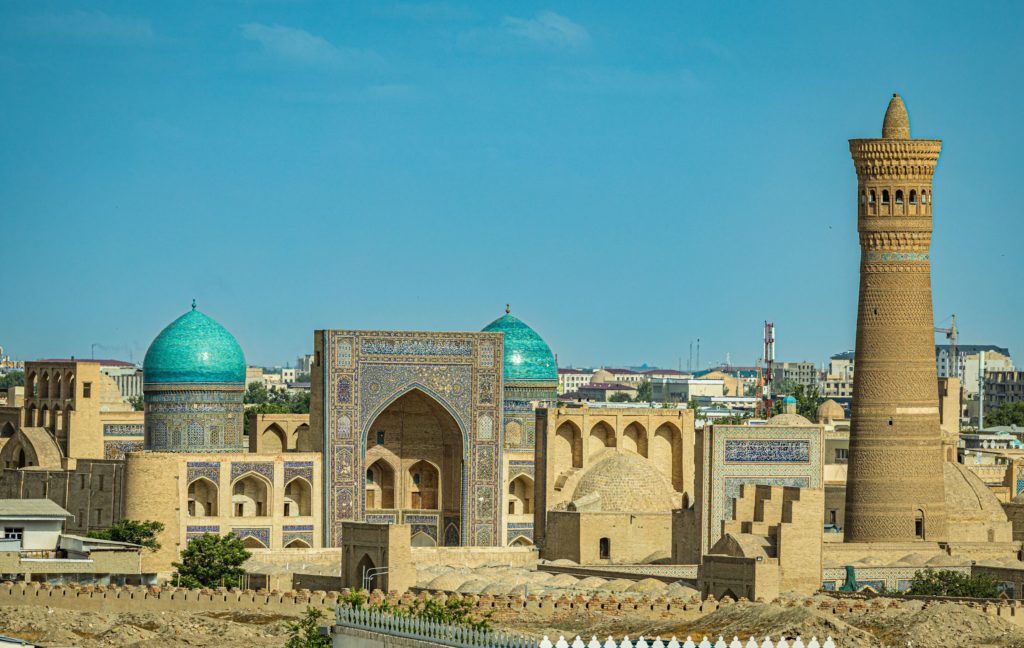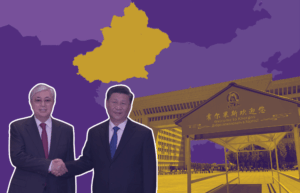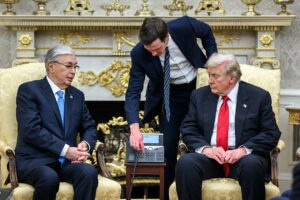Some 20 people have been sentenced to prison for their participation in the protests that took place in Karakalpakstan last summer. The trial has been controversial, as the investigation into the events has been shrouded in secrecy.
On January 12, the Bukharan provincial court sentenced Karakalpak activist and blogger Dauletmurat Tazhimuratov and journalist Lolagul Kallykhanova to 18 and 11 years in prison, respectively. This was reported by the Uzbek online newspaper Gazeta.uz.
In response to a proposed constitutional reform, mass protests took place in Nukus, the capital of Karakalpakstan, in early July last year. The amendments would have revoked the autonomous status the Republic of Karakalpakstan has enjoyed since Uzbekistan’s independence from the Soviet Union. Hundreds of people were detained in the wake of the demonstrations and the planned constitutional referendum was postponed to spring 2023.
According to the Uzbekistani authorities, at least 21 people were killed during the violent crackdown of the protests. Hundreds more were injured. A total of 171 people have been charged in criminal proceedings relating to the events in Karakalpakstan. In addition to the 22 people whose verdict now has been handed down, 39 others are still in custody, reports Radio Ozodlik, the Uzbekistani service of Radio Free Europe.
A questionable trial
The participants in the demonstrations of last summer have been accused of “undermining the constitutional order of the Republic of Uzbekistan” and organizing “mass unrest.” Of the 22 defendants, 18 were sentenced to shorter prison terms of between 5 and 9 years, according to the Uzbekistani news portal Kun.uz. Two of the defendants were released on parole.
The Uzbekistani news portal Daryo reports that 21 of the defendants have pleaded guilty in exchange for a possible reduction of their sentence. Only one pleaded partially guilty: Dauletmurat Tazhimuratov. He declared in December: “I don’t consider myself guilty of human deaths.”
Read more on Novastan: Blue skies, red puddles: political developments in Uzbekistan since the protests in Karakalpakstan
Some of the co-defendants accused Tazhimuratov of inciting them to participate in the protests, such as athlete Azamat Turdanov, who was sentenced to 8 years in prison. “The real reason we are here [in court] are the separatist videos and ideas of Dauletmurat Tazhimuratov, which have poisoned people’s brains,” he testified. Another defendant, Nurlan Naipov, also blamed blogger Tazhimuratov who, he claimed, had “turned [his] thoughts upside down and pushed [him] onto the street.”
There was another twist to the story when one woman accused Tazhimuratov of paying people to participate in the demonstrations. But under increasing pressure, she quickly confessed to have lied.
Public hearings
This false testimony did not raise any questions about the alleged impartiality of the legal proceedings, as the case has been completely transparent. The trial opened in Bukhara on November 28, some 500 kilometres from Nukus. Yet, local journalists were notified in advance so that they could travel to court to attend the first hearings. Moreover, the hearings were open to the public and livestreamed on Gazeta.uz.
Read more on Novastan: Protests in Karakalpakstan: a witness reports
“The public confessions serve as evidence that investigators did their job well. The appeals from the defendants to the ruling political class are intended to underline the sense that confidence in the system, even among criminal suspects, remains robust” said Joanna Lillis, who reported on the ground for Eurasianet.
So far, however, no police officers have been brought to justice for the excessive force that was used to quell the protests. It remains to be seen whether those responsible for the brutal crackdown will indeed be penalised for their actions.
The results of the investigative commission that was formed on July 15, have not been made public. The list of the 21 people that were killed, has also not been published, but was only briefly “mentioned” during the trial. Human Rights Watch concludes that the many secrets concerning the investigation cast doubt on the probability of fair trial.
Written by Emma Collet, editor for Novastan
Translated from French to English by Julian Postulart
Edited by Maya Ivanova
For more news and analysis from Central Asia, follow us on Twitter, Facebook, Telegram, Linkedin or Instagram.
 Karakalpakstan: long prison sentences for participants in last year’s protests
Karakalpakstan: long prison sentences for participants in last year’s protests 



